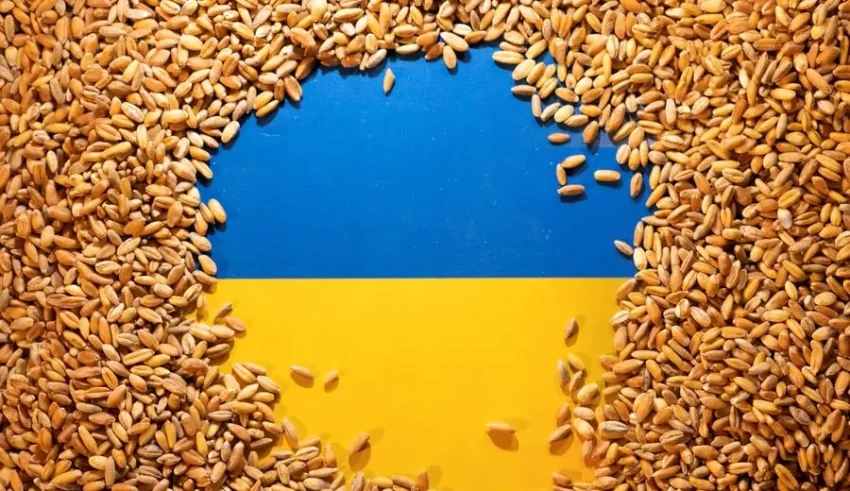
Several member states of the EU have stated that they will unilaterally keep the bans on Ukrainian grain that were established earlier this year. This move has harshly been critizised by both the EU and Ukrainian government during the last few days and has created a situation that will most likely necessitate the intervention or arbitrariation of the EU or even third parties.
Imports of Ukrainian grain, including wheat and maize have since April been banned in several EU countries as a consequence of an embargo. The embargo was imposed by the EU until September 15 to prevent a knock-on effect on the farmers from countries such as Poland, Hungary, Bulgaria, Slovakia and Romania. This ban was agreed upon after farmers from these countries argued that Ukrainian produce destined for other countries’ markets was remaining on domestic markets and thus pushing them into bankruptcy and because cheaper Ukrainian products resulting from the invasion were seemingly “flooding” these countries’ markets as a consequence of the Russia-Ukraine war. As Russia decided to withdraw from the grain deal, the EU created alternative land routes. These alternatives seemed however to cause the exported products to accumulate in these countries rather than passing to other markets.
The Polish Prime Minister called on the European Union to extend the embargo on imports of Ukrainian grain under the argument that they must protect Polish farmers, and has also stated that they will do so even if the EU does not agree with the decision, because they “cannot allow for a deregulation of the market”. While Poland has supported Ukraine through humanitarian assistance, as a consequence of farmers’ protests, the government has been adamant in banning imports of Ukrainian agriculture products. The prime minister has stated that despite their willingness to aid Ukraine in the ongoing war, they must prioritize their citizens and countryside. Hungary and Slovakia have also sided with Poland in this issue and have stated that they asked the European Commission to extend the ban on imports but received no answer. Many argue that this is a populist strategy coming from the Polish ruling party to ensure the votes of the farmers in its campaign, which are thought to be essential for their victory. However, Polish rural voters seem to already be disenchanted with the ruling party as a consequence of their management of the Ukrainian grain problem and animal disease crises.
In the face of these events, the Ukrainian Prime Minister has stated that this would pose a violation of trade law and that Ukraine will have to turn to the WTO for arbitration in order to obtain compensation for the embargo. Moreover, other 22 EU member states have shown to be against the extension of the ban, though they argue that the final decision is in the hands of the European Commission. This move by the Polish government would violate the bloc’s common trade rules, and is not the first time the Polish government has threatened to do such a thing. Yet, Poland’s EU agriculture commissioner, Janusz Wojciechowski has stepped up in effort to get the embargo extended and has warned that lifting the restrictions could lead to another “big crisis in the five front line member states.” Nevertheless, Ukraine agreed to introduce legal measures within 30 days to avoid grain surges and the European Commission has stated that thanks to the work of the Coordination Platform and temporary measures established in May, the market distortions in the five bordering Member States have disappeared. Consequently, the EU has said that it would not impose further restrictions as long as these measures are in place and working. Moreover, experts argue that even if these bans are imposed, as long as Ukraine is able to certify that the grain gets to the country of destination, the unilateral bans will not really put a dent in Ukraine’s ability to get exports out. Still, it remains unclear how the bans might affect the flow produced from Ukraine.
Poland has repeatedly asked tha a mechanism be put in place to ensure that the products coming from Ukraine pass through the country but without ending up on the local market so that both Poland and Ukraine suffer the least possible under these circumstances. While the unilateral decisions made by Hungary and Poland will probably not help and will most likely end up leading to legal issues regarding EU trading policy, it is important that the EU builds a joint stance in this situation, one that is able to benefit all of the affected parties. If the legal measures agreed upon by Ukraine are proven to work, the opening of the markets could be done paulatinely and with harsh control and monitoring.
REFERENCE LIST
Brzeziński, B. (2023, 12 September). Poland won’t reopen its border to Ukrainian grain imports, PM says. POLITICO. https://www.politico.eu/article/eu-poland-prime-minister-mateusz-morawiecki-ukrainian-grain-imports/
Inotai, E., Ciobanu, C., & Todorov, S. (2023). Hungary and Poland vow to introduce Ukraine grain ban as EU-Brokered deal expires. Balkan Insight. https://balkaninsight.com/2023/09/15/hungary-and-poland-vow-to-introduce-ukraine-grain-ban-as-eu-brokered-deal-expires/
Jazeera, A. (2023, 12 September). Poland threatens to keep Ukrainian grain ban after embargo date expires. Russia-Ukraine war News | Al Jazeera. https://www.aljazeera.com/news/2023/9/12/poland-to-keep-ukrainian-grain-ban-after-embargo-date-expires
Payne, J., & Charlish, A. (2023, 16 September). Poland, Hungary, Slovakia to introduce bans on Ukraine grains. Reuters. https://www.reuters.com/world/europe/eu-does-not-extend-ban-ukraine-grains-imports-neighbouring-eu-countries-2023-09-15/
By The European Institute for International Law and International Relations.















